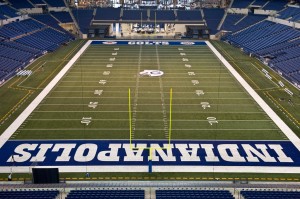 I have recently returned from attending the 3rd Annual Sports Cardiology Summit of the American College of Cardiology. This year, the meeting took place in Hoosier territory.
I have recently returned from attending the 3rd Annual Sports Cardiology Summit of the American College of Cardiology. This year, the meeting took place in Hoosier territory.
The meeting was informative, and it was gratifying to see the growing interest in sports cardiology. The presentations were for the most part excellent. The faculty came from all corners of the country and from overseas. Dr. Sharma, a pediatric cardiologist from Britain, runs one of the largest youth screening program in the world, the sports cardiology unit of St. George Hospital in London. He is also the medical director for the London marathon.
Also present, among many notable sports cardiology researchers, was Dr. Aaron Baggish, who runs the cardiovascular performance program at the Massachusetts General Hospital and who is medical director for the Boston Marathon. An article in the Boston Globe describes his involvement helping patients during last year’s terrible event.
A recurrent mantra throughout the meeting emphasized how important it is to individualize the evaluation and treatment of athletes. This is no cookie-cutter medicine, and that’s fine by me!
Another useful reminder was that in cases of diagnostic uncertainty (about whether a finding is a true abnormality or simply a variant or an adaptation), simply taking one’s time frequently allows the truth to emerge. This happens because by proceeding carefully, one can pick up on subtle signs that will point the doctor in the right direction.
